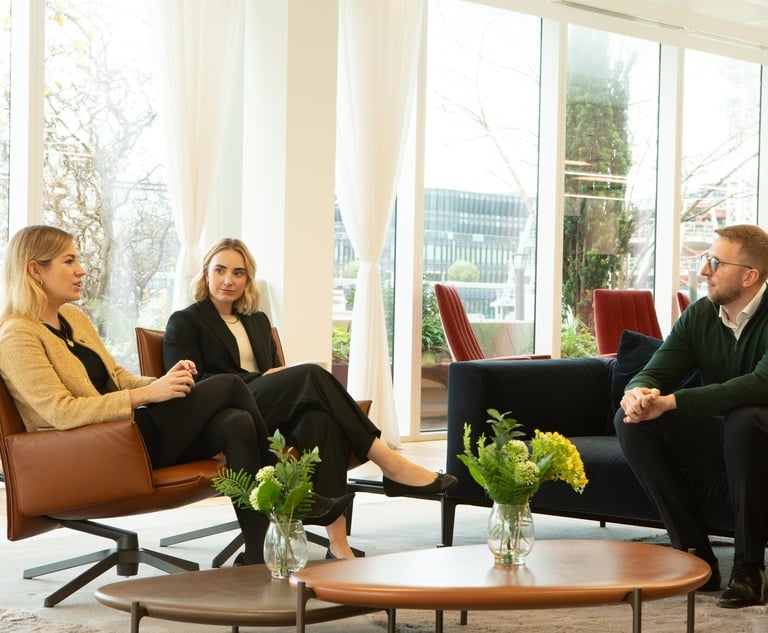 Credit: Bigstock
Credit: BigstockWill Billing Rates for Elite Firms Rise More in 2020?
Kirkland & Ellis said it typically increases the hourly rates of its professionals twice a year. But in 2020, routine rate hikes by big firms are not certain, observers said.
July 30, 2020 at 12:41 PM
6 minute read
The original version of this story was published on The American Lawyer
In the midst of a recession, big restructuring law firms such as Kirkland & Ellis and Weil, Gotshal & Manges continue charging premium billing rates—close to $2,000 per partner—months after the firms' regular rate increases.
With another rate increase possibly right around the corner this year, some law firm and restructuring observers say they don't expect many discount pressures or pushback on ballooning rates in bankruptcy court. But rate hikes in 2020 are not a done deal, they add.
Weil said in court filings that the firm typically raises rates once per year, while Kirkland said it typically increases the hourly rate of its professionals twice a year.
Kirkland, which has earned a significant portion of the work so far in large pandemic-era bankruptcies, raised its hourly billing rates Jan. 1, according to court documents filed in the Neiman Marcus bankruptcy. Among others, the firm is also advising JCPenney and Chesapeake Energy in their Chapter 11 cases.
From May 7 to Dec. 31 of last year, Kirkland partners were charging $1,025 to $1,795; counsel were charging $595 to $1,705; and associates were charging $595 to $1,105. Now, both Kirkland partner and counsel rates top out at $1,845—an increase of 2.7% and 5.9%, respectively—while associate hourly rates reach upward of $1,165—a 3.6% increase.
Weil, another bankruptcy powerhouse that is handling the J.Crew and Brooks Brothers bankruptcies, also upped its rates in the last year, according to court documents filed in the J.Crew case.
As of October 2019, partners and counsel are now billing $1,100 to $1,695—the upper rate a 5.9% increase from the previous high of $1,600—while associates are charging $595 to $1,050—the upper rate a 5.5% increase from the previous high of $995 that officially pushed some Weil associates over the $1,000 per hour mark.
For example, in May, partners charged up to $1,695 per hour and associates charged up to $1,050 for work done in the J.Crew bankruptcy, according to the first monthly fee statement.
Akin Gump Strauss Hauer & Feld, another top bankruptcy firm that earned work on the Chesapeake Energy Chapter 11 restructuring, increased some rates in January 2019, according to court documents filed in the ongoing but pre-pandemic Sears bankruptcy.
At the time, the highest partner rates at Akin Gump rose 3.5%, up to $1,755 per hour; highest counsel rates rose 7.2%, up to $1,420 per hour; and highest associate rates rose 5.4%, up to $975 per hour.
According to Akin Gump's 20th monthly fee statement, filed May 30 this year, in the Sears bankruptcy—where it is representing the committee of unsecured creditors—partner, counsel and associate rates are still on par with what the firm charged a year and a half ago.
Overall, if these big firms raised their hourly rates in 2020 just as much as previous years, the partners could be charging up to $1,895 at Kirkland, $1,795 at Weil and $1,815 per hour at Akin Gump, while associates could bill up to $1,205 at Kirkland, $1,110 at Weil and $1,105 an hour at Akin Gump.
Representatives for Kirkland and Weil did not respond to requests for comment about whether they were planning to increase their rates this year, and if so, by how much. An Akin Gump representative declined to comment.
|Great Recession Lessons
Restructuring and legal market observers have mixed opinions on whether firms will seek further rate increases this year—and by how much—although all agree that top bankruptcy firms will likely end the year with higher fees than any other given year.
Mark Medice, a law firm management consultant at LawVision who focuses on financial performance and data science, said he doesn't think firms will have an annual adjustment to bankruptcy billing rates in 2020. Citing the Great Recession as an example, he said he didn't see many firms increase their rates at the onset of the recession to capitalise on increased demand for bankruptcy services and that billing rates actually dipped in the years following the recession.
"Demand [for bankruptcy practices] tends to go up when there are downturns, but as a general rule, law firms do not adjust their rates upwards during those times," he said.
In the coming months, he said he believes it's more likely that firms will see higher realisation rates and will reduce write-downs. Currently, firms like Kirkland, Weil, Akin Gump and others usually ask for 80% of the total fees they bill every month, according to monthly fee statements.
Lynn LoPucki, a restructuring law professor at UCLA Law, also said rate increases every year aren't a done deal, but if they do occur, there are few stakeholders in bankruptcy court that will keep rate increases in check.
"Nobody's controlling the fees," he said. "If you're a debtor, you're not going to control the fees because you're spending other people's [the creditors'] money."
Some creditors, who are last in line to get paid, may begin objecting to large firm fee applications, he said. A group of vendors, for instance, pushed back in late 2019 on the millions Weil billed in the Sears bankruptcy, but the judge overruled objections.
"There will be creditors that try to push back because the rates are so great, and the response of judges to that is to be to toss them some scraps," LoPucki said. In the bankruptcy of aerospace-parts manufacturer Wellman Dynamics Co., for instance, an Iowa bankruptcy judged in 2017 called Weil's fees "staggering" and cut its multimillion-dollar payment in half, according to the Wall Street Journal. A U.S. trustee found Weil also overbilled mortgage servicer Ditech last year.
While judges are required to review every fee in a Chapter 11 case, LoPucki said he believes they are not inclined to object to rising rates, even during a recession. If bankruptcy judges begin to say no to fee increases, "firms will start taking their cases to different courts," he said, meaning less interesting work for judges as well as fewer filing fee dollars flowing into a jurisdiction.
"Fundamentally, this situation can't change, because if one judge in one city says no to the fees, the cases just go to a different city," LoPucki said. "It's hard to get across what a totally insane system this is."
|Read More:
Law Firms Are Raking in Millions From Pandemic-Era Retail Bankruptcies
This content has been archived. It is available through our partners, LexisNexis® and Bloomberg Law.
To view this content, please continue to their sites.
Not a Lexis Subscriber?
Subscribe Now
Not a Bloomberg Law Subscriber?
Subscribe Now
NOT FOR REPRINT
© 2025 ALM Global, LLC, All Rights Reserved. Request academic re-use from www.copyright.com. All other uses, submit a request to [email protected]. For more information visit Asset & Logo Licensing.
You Might Like
View All
Paul Weiss Says Progress Means 'Embracing the Uncomfortable Reality'
5 minute read

GCs Say They are Getting 'Edged Out' of UK Boardrooms

‘We’re In Need of a Fix’—Is London’s Litigation Market in Trouble?
Law Firms Mentioned
Trending Stories
- 1The Importance of Contractual Language in Analyzing Post-Closing Earnout Disputes
- 2People in the News—Jan. 8, 2025—Stevens & Lee, Ogletree Deakins
- 3How I Made Partner: 'Avoid Getting Stuck in a Moment,' Says Federico Cuadra Del Carmen of Baker McKenzie
- 4Legal Departments Dinged for Acquiescing to Rate Hikes That 'Defy Gravity'
- 5Spalding Jurors Return $12M Verdict Against State Farm Insurance Client
Who Got The Work
Michael G. Bongiorno, Andrew Scott Dulberg and Elizabeth E. Driscoll from Wilmer Cutler Pickering Hale and Dorr have stepped in to represent Symbotic Inc., an A.I.-enabled technology platform that focuses on increasing supply chain efficiency, and other defendants in a pending shareholder derivative lawsuit. The case, filed Oct. 2 in Massachusetts District Court by the Brown Law Firm on behalf of Stephen Austen, accuses certain officers and directors of misleading investors in regard to Symbotic's potential for margin growth by failing to disclose that the company was not equipped to timely deploy its systems or manage expenses through project delays. The case, assigned to U.S. District Judge Nathaniel M. Gorton, is 1:24-cv-12522, Austen v. Cohen et al.
Who Got The Work
Edmund Polubinski and Marie Killmond of Davis Polk & Wardwell have entered appearances for data platform software development company MongoDB and other defendants in a pending shareholder derivative lawsuit. The action, filed Oct. 7 in New York Southern District Court by the Brown Law Firm, accuses the company's directors and/or officers of falsely expressing confidence in the company’s restructuring of its sales incentive plan and downplaying the severity of decreases in its upfront commitments. The case is 1:24-cv-07594, Roy v. Ittycheria et al.
Who Got The Work
Amy O. Bruchs and Kurt F. Ellison of Michael Best & Friedrich have entered appearances for Epic Systems Corp. in a pending employment discrimination lawsuit. The suit was filed Sept. 7 in Wisconsin Western District Court by Levine Eisberner LLC and Siri & Glimstad on behalf of a project manager who claims that he was wrongfully terminated after applying for a religious exemption to the defendant's COVID-19 vaccine mandate. The case, assigned to U.S. Magistrate Judge Anita Marie Boor, is 3:24-cv-00630, Secker, Nathan v. Epic Systems Corporation.
Who Got The Work
David X. Sullivan, Thomas J. Finn and Gregory A. Hall from McCarter & English have entered appearances for Sunrun Installation Services in a pending civil rights lawsuit. The complaint was filed Sept. 4 in Connecticut District Court by attorney Robert M. Berke on behalf of former employee George Edward Steins, who was arrested and charged with employing an unregistered home improvement salesperson. The complaint alleges that had Sunrun informed the Connecticut Department of Consumer Protection that the plaintiff's employment had ended in 2017 and that he no longer held Sunrun's home improvement contractor license, he would not have been hit with charges, which were dismissed in May 2024. The case, assigned to U.S. District Judge Jeffrey A. Meyer, is 3:24-cv-01423, Steins v. Sunrun, Inc. et al.
Who Got The Work
Greenberg Traurig shareholder Joshua L. Raskin has entered an appearance for boohoo.com UK Ltd. in a pending patent infringement lawsuit. The suit, filed Sept. 3 in Texas Eastern District Court by Rozier Hardt McDonough on behalf of Alto Dynamics, asserts five patents related to an online shopping platform. The case, assigned to U.S. District Judge Rodney Gilstrap, is 2:24-cv-00719, Alto Dynamics, LLC v. boohoo.com UK Limited.
Featured Firms
Law Offices of Gary Martin Hays & Associates, P.C.
(470) 294-1674
Law Offices of Mark E. Salomone
(857) 444-6468
Smith & Hassler
(713) 739-1250







